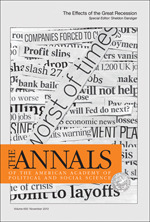The ANNALS of the American Academy of Political & Social Science
Availability :
In Stock
₹ 2,361.96
M.R.P.:₹ 2916
You
Save: ₹554.04 (19.00% OFF)
(Inclusive
of all taxes)
Delivery:
₹ 0.00 Delivery charge
Author:
Sheldon Danziger
Publisher:
SAGE Publications Inc
Edition:
650th Edition
ISBN-13:
9781483351025
Publishing Year:
November 2013
No. of Pages:
300
Weight:
30 grm
Language:
English
Book Binding:
Paperback











